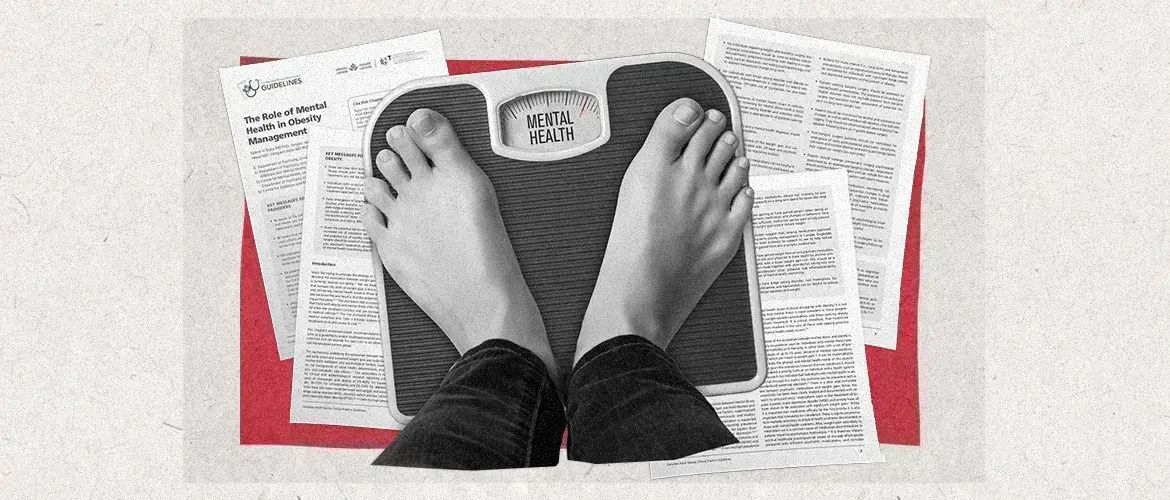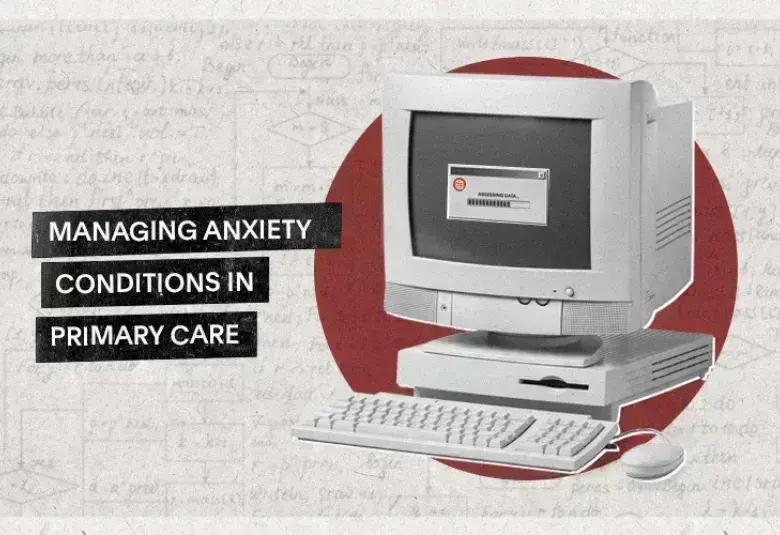A growing body of evidence points to the association between mental illness and obesity. For example, the risk of being obese is more than four times higher in patients with schizophrenia and 1.5 times higher in patients with major depression and bipolar disorder versus general population.1 A major culprit is antipsychotic medications.
What can clinicians do to manage the risk of obesity and its implications in patients with mental illness?
In a symposium at the 2022 CPA conference, Dr. Sri Mahavir Agarwal and Dr. Margaret Hahn from the University of Toronto came together to discuss the relationship between obesity and mental health. They also reviewed the most recent Canadian Adult Obesity Clinical Practice guidelines in addressing this complex issue.
What is the link between mental illness and obesity?
Individuals with mental illness have a higher risk of being overweight or obese compared to people who do not have a mental illness.1
“The association between mental illness and obesity or metabolic dysfunction is not straightforward since there are many contributing factors,” said Dr. Agarwal.
First, patients with mental illness may have limited access to various healthy lifestyle options, leading to poor dietary and exercise habits, reduced self-care, and high smoking rates.
A second contributing factor is the disparities in healthcare. “Patients with mental illness have poor access to physical care. In addition, the poor coordination between different arms of the healthcare system may exacerbate this problem,” acknowledged Dr. Agarwal.
Third, the pre-existing genetic overlap between the mental illness biology and obesity or metabolic syndrome also predisposes patients to metabolic concerns. For example, a recent study has identified a genetic overlap between schizophrenia and metabolic syndrome.2
Finally, Dr. Agarwal noted that psychiatric treatments, particularly antipsychotic medications, also contribute to the association.
In the past two decades, second-generation antipsychotics have replaced first-generation antipsychotics. While these medications have reduced the burden of motor-related side effects (e.g., extrapyramidal symptoms) compared to first-generation medications, they have introduced a new set of side effects, including weight gain and metabolic dysfunction.
Different factors contribute to the link between mental illness and obesity, including lifestyle and systemic factors, illness biology, and psychiatric treatments.
Obesity and metabolic dysfunction can lead to significant health consequences, including poor cardiovascular health and diabetes.
“But it is not just cardiovascular health; obesity and metabolic dysfunction [negatively] affects all domains of functioning such as treatment compliance. Patients do not want to take their medication because of weight gain,” noted Dr. Agarwal. “And poor treatment compliance cascades to increased cost of care, decreased engagement with care, and reduced cognitive performance.”
How well are psychiatrists dealing with this problem?
“As healthcare providers, we are managing patients’ metabolic health poorly,” noted Dr. Agarwal.
A study investigating the cardiometabolic risk in 404 patients with schizophrenia showed that while 56% of patients had dyslipidemia, only 0.5% received lipid-lowering medications. And although 39.9% had prehypertension and 10.2% had hypertension, only 3.6% received antihypertensive medications.3
In addition, 13.2% of patients had metabolic syndrome, and about half of them (48.3%) were obese or overweight, but none received any treatments.3
Considering the increasing off-label use of second-generation antipsychotics4, the negative implications of antipsychotic-induced obesity and metabolic dysregulations, and the low rate of treatment and monitoring for obesity and metabolic syndrome by psychiatrists, defining evidence-based medical practices for managing antipsychotic-induced obesity in patients with mental illness is critical.
Psychiatrists need to manage the risk of obesity and metabolic dysfunctions in patients treated with antipsychotics using evidence-based guidelines-recommended practices.
Thus, Dr. Agarwal and Dr. Hahn conducted a large Cochrane meta-analysis investigating the evidence of pharmacological interventions for antipsychotic-induced weight gain in patients with mental illness.
This meta-analysis, currently in revision, identified 46 studies that examined the use of 23 different medications in managing obesity in patients with mental illness. Of these, two agents had the most evidence: biguanides and glucagon-like peptide 1 (GLP-1) receptor agonists.
Eleven studies supported the efficacy and safety of biguanides over placebo in managing antipsychotic-induced weight gain.
“Biguanides in the context of antipsychotic-induced obesity were studied off-label,” said Dr. Hahn. “The weight loss is modest. The number needed to treat to achieve 5% weight loss is about four. And Biguanides are more efficacious in patients with first-episode psychosis with an average of five kilograms weight loss.”
Five studies supported using GLP-1 receptor agonists. “These medications have an average of five kilograms of weight loss across the studies. And they also improve certain glucose and lipid parameters,” said Dr. Hahn.
What does the Canadian Adult Obesity Clinical Practice guidelines say?
The most recent Canadian Adult Obesity Clinical Practice guidelines (2020) has a chapter on the role of mental health in obesity management. This chapter includes evidence-based recommendations to assist psychiatrists in making informed treatment decisions when managing antipsychotic-induced obesity in patients with mental illness.
Dr. Hahn reviewed several key messages from the guidelines:
- Avoid off-label use of antipsychotics, as even low doses of these medications can cause significant metabolic adverse effects.
- Avoid medications with higher metabolic risks when initiating antipsychotic treatment for the first time.
- Monitor weight gain, waist circumference, glucose, and lipid profile regularly in patients taking medications associated with weight gain.
- Consider switching to a lower-metabolic-liability antipsychotic in patients with severe mental illness who gain weight on antipsychotic treatment.
- GLP-1 receptor agonists have the most safety and efficacy evidence among licensed medications for chronic obesity management in Canada to mitigate antipsychotic-induced weight gain.
- Consider off-label use of biguanides combined with behavioral obesity management strategies to treat and prevent weight gain in patients treated with antipsychotics.
- Behavioral obesity management strategies (e.g., Cognitive Behavioral Therapy (CBT), nutritional and exercise interventions) can be effective in managing weight gain in patients with co-occurring mental illnesses.
Biguanides (off-label indication), and GLP-1 receptor agonists (licensed indications), are guidelines-recommended medications to manage antipsychotic-induced obesity in patients with mental illness.
These are selected key messages from the guidelines for managing antipsychotic-induced obesity in patients with mental illness. If you are interested in exploring more, you can access the guidelines on the Obesity Canada website.
Our correspondent’s highlights from the symposium are meant as a fair representation of the scientific content presented. The views and opinions expressed on this page do not necessarily reflect those of Lundbeck.




